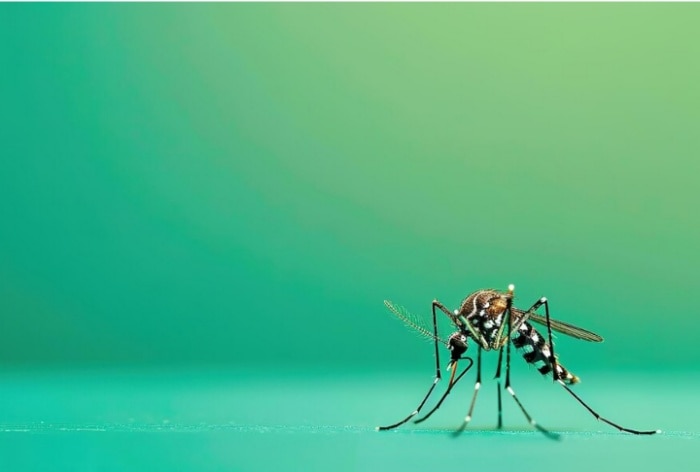Dengue and Zika viruses often have similar symptoms. How exactly can we tell them apart? An expert shares details about the differences in symptoms and treatment.
The cases of Zika virus and dengue are constantly increasing in several states. Both are vector-borne diseases that are primarily transmitted through the bite of a mosquito. Both the diseases can turn fatal if not treated on time. They usually show similar signs and symptoms. So, how can one differentiate one from the other before getting tested? India.com got in touch with Dr Vivek Hittinahalli MD (Microbiology) from Apollo Cradle and Children’s Hospital, Bengaluru, who explained the differences and shed light on the symptoms and further treatment needed.
Dengue and Zika are two separate diseases that are transmitted through the bite of a mosquito vector, usually Ae aegypti. While dengue usually presents as a high fever with severe headaches and joint or muscle pain, Zika causes a mild fever with a rash and conjunctival inflammation. Dr Hittinahalli says, “The worrying factor is that Zika is significantly dangerous for pregnant women as it can cause birth defects in newborns. Despite the similarities in the modes of spread and some of the symptoms, the two are different in many ways, and differentiation must be made for proper treatment and diagnosis.”
How are these viruses transmitted?
Zika and dengue viruses are flaviviruses that are primarily transmitted by Aedes mosquitoes, especially Ae aegypti. These mosquitoes are most effective during the day, so they require protection during the day. While both diseases use the same mode of transmission via the Aedes aegypti mosquito, Zika can also be transmitted through sexual contact, blood transfusion, and from mother to child during pregnancy, unlike dengue.
What are the symptoms?
Zika virus:
- Mild fever: generally lower than that of dengue.
- In many cases, rashes appear all over the body.
- Inflammation of the eyes or conjunctivitis, especially red discharge.
- Mild joint and muscle pain will be experienced.
- A mild headache is also a common symptom.
Dengue:
- High fever with temperatures reaching up to 104°F or 40°C
- Headaches, especially around the eyes or temples.
- Severe pain in the joints and muscles, also known as “breakbone fever” due to gravity
- The rash may appear a few days after the onset of the fever.
- Nausea and vomiting are common in many cases of dengue.
What are the complications?
Zika virus: The Zika virus is known to cause microcephaly and other severe brain development abnormalities in fetuses that occur if a pregnant woman is infected. Zika has been linked to Guillain-Barré syndrome, a rare condition in which the body’s immune system attacks the nerves, which can lead to paralysis.
DengueDengue hemorrhagic fever and dengue shock syndrome are life-threatening illnesses that cause extremely low blood pressure, spontaneous bleeding, loss of blood plasma, and decreased platelet count.
Treatment approach: Treatment for Zika and dengue focuses on relieving symptoms. For Zika, rest, drinking plenty of fluids, and taking painkillers such as paracetamol are recommended. For dengue, staying hydrated is most important, and painkillers can help relieve high fever.
In addition, a dengue vaccine has been developed and is being implemented in some countries, so the burden of such a serious disease will be greatly reduced.
Prevention: Preventive measures for both diseases focus on avoiding mosquito bites, avoiding stagnant water, and applying mosquito repellents. Wearing clothing with sleeves. Most importantly, precautions such as avoiding mosquito breeding sites should be taken with greater care among pregnant women.
Although Zika and dengue are similar in many aspects of their signs and the way they spread, there are differences in terms of symptoms, the effects of the virus and the way it is transmitted. The most important thing that can significantly improve patient outcomes is accurate differential diagnosis with the help of specific tests to avoid complications in management.
